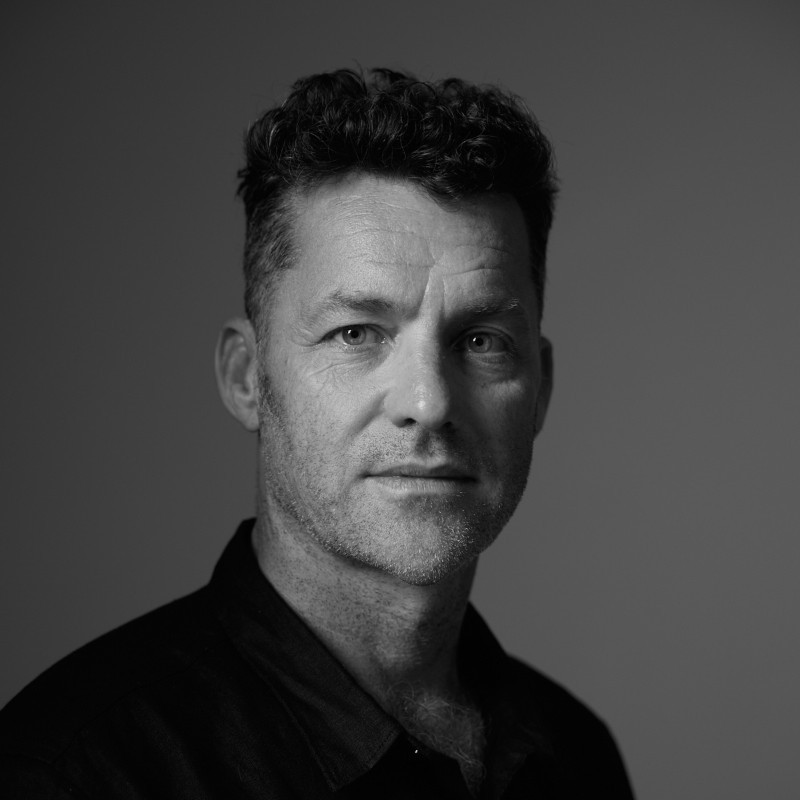
ASKING FOR A FRIEND
How can I turn a poor performing team into a high performing team?
ASKING FOR A FRIEND - QUESTION
When your creative team lacks strategy, consistency and energy, it's tempting to either do everything yourself or give up entirely. But there's a third option that doesn't involve burnout or resignation. Ash King, psychologist and cyberpsychology researcher at the University of Sydney who specialises in creative industry wellbeing, teams up with Simon Lee, Chief Creative Officer of The Hallway with over a decade of team-building experience, to tackle this all-too-common workplace challenge. Hosted by Andy Wright, founder of Never Not Creative, this discussion reveals why poor performing teams are actually structural problems in disguise, and how stepping outside your job description (strategically) might be the key to turning things around. Spoiler: you don't need to be the hero who fixes everything.
You know that sinking feeling when you're part of a team that just isn't clicking? When there's no clear strategy, people aren't pulling their weight, and everything feels like an uphill battle with minimal payoff. It's exhausting, demoralising, and frankly, pretty common in our industry.
If you're a designer stuck in this situation, wondering how you can help turn things around, you're not alone. The good news is that poor performing teams can absolutely become high performing ones with the right approach and mindset.
This question was answered by Ash King, psychologist and cyberpsychology researcher at the University of Sydney, who specialises in helping creatives manage workplace challenges and mental wellbeing, and Simon Lee, Chief Creative Officer and joint owner of The Hallway, with over a decade of experience building successful creative teams and fostering positive workplace culture. The discussion was hosted by Andy Wright, founder of Never Not Creative and CEO of Streamtime.
It's not actually a design problem
Here's the thing that might surprise you: "This is not a design challenge, it's actually a structural challenge," as Simon puts it. When a team lacks consistency, discipline, and energy, you're usually looking at deeper organisational issues rather than creative ones.
Ash explains that these symptoms often point to people not having "clarity about their roles, what's expected of them, and maybe there's not a lot of exercises in collaborating, working together, sharing ideas." Sometimes team members are overloaded, sometimes they're underloaded and not given work that excites them.
The key insight? You don't need to fix this as a designer. You need to put on a different hat entirely.
Step outside your job description (strategically)
Simon suggests viewing this as "a potential opportunity for this designer to put another hat on and kind of step outside of the day-to-day." Instead of trying to design your way out of the problem, look at what structure and processes could help the team perform better.
"If you go, everyone knows it's not performing, here is a structure that could allow it to perform, and take that to the person charged, you then don't have to implement and do it all, but the actual initiative of stepping outside your designer title is a potential chance to show you've got some smarts."
The brilliant part? You don't need to reinvent the wheel. "There's studios all around the country and all around the world that work really well and they all operate in a very similar way," Simon notes. Have conversations with people in other studios, learn what works for them, and adapt it to your situation.
Build empathy skills first
Before diving into structural solutions, Ash emphasises the importance of building empathy skills. "I know it sounds soft, but Never Not Creative has done some awesome research around the importance of empathy in workplaces."
Start by understanding what barriers your team members might be facing. Where do they need more support? What's preventing them from doing their best work? "People need to feel safe, they need to feel supported, and they need to feel like there's values and directions to move towards," Ash explains.
You can't just show up one day and demand everyone gets on board. Real change requires understanding your colleagues as humans first.
Focus on what people need from work
Ash references the Smart Work Design Framework, which breaks down what we need from our jobs into five elements: stimulation, mastery (how good you're allowed to be), agency (control over how you work), relational support, and tolerable demands.
"Often in the creative industry we get into like you derive your positivity from the outcome of the work that you do or what client or brand you get to work on, whereas we forget about what is it that we need from a job to keep us motivated and positive."
The creative industry is fantastic for stimulation, but often struggles with tolerable demands. Understanding these needs for yourself and your team can help identify where the real problems lie.
Avoid the hero complex
Here's an important warning from Ash: don't fall into the trap of thinking you need to do everything yourself. "Maybe they might feel the need to take on the majority of work and then everyone else can take credit, which is a fast track to burnout."
Remember, "being a leader and manager also requires a unique skill set." If this isn't part of your job description, make sure you're not taking on extra responsibilities without proper support.
How NNC Circles could help
If you're feeling isolated in this challenge, consider joining Never Not Creative Circles. These peer support groups connect creatives facing similar workplace challenges in safe, confidential spaces. Meeting monthly with 8-10 other creatives, you'll get practical advice, emotional support, and the reassurance that you're not alone in navigating difficult team dynamics. The groups focus on real solutions and building resilience, which could be exactly what you need while working to transform your team. Learn more about NNC Circles here.
You're not stuck forever
The most encouraging thing about this situation? "At a macro level, it's not that hard," as Simon puts it. Yes, it feels overwhelming when you're in the thick of it, but poor performing teams can absolutely turn around with the right approach.
Focus on understanding the structural issues, build empathy with your teammates, and don't be afraid to step up with solutions. You might just find that this challenging situation becomes the catalyst for positive change in your career and your workplace.
our guests
Industry Leader

Simon Lee
Enigma
Mental Health Expert

Ash King
ashking.com
Host

